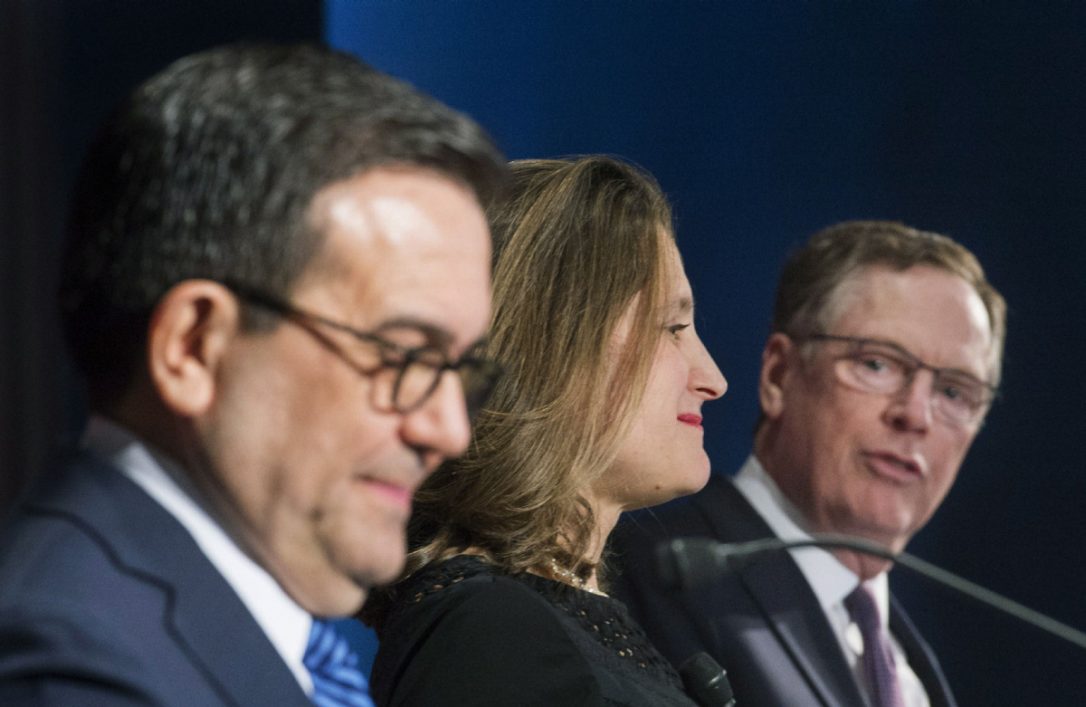Nafta in play-the state of play following the sixth round of negotiations
Lexology | 5 February 2018
Nafta in play-the state of play following the sixth round of negotiations
The sixth round of the NAFTA 2.0 negotiations concluded on January 29 in Montreal. Some of the key areas covered in this round are summarized below.
Auto rules of origin continued to be a major topic of discussion. The standing US proposal – to increase regional content from 62.5% to 85% and establish a new 50% US content requirement – has seemingly gotten no traction with Mexico and Canada. The Canadian team proposed new, purportedly US-favorable rules for the calculation of regional content (e.g., including in the content calculation costs such as research and development and software development). At the close of the round US Trade Representative Lighthizer rejected this new idea.
Also remaining in the spotlight was the US push for the elimination of Investor-State Dispute Settlement (“ISDS,” which US businesses have used with great success in challenging Mexican and Canadian regulations), or at least for an amendment that would allow a country to “opt-out” of ISDS. The report from the sixth round is that rather than accept an ISDS opt-out right (that would, in effect, require Mexican and Canadian investors to pursue their claims in the US judicial system rather than in arbitration), Mexico and Canada would prefer to simply remove ISDS altogether. In that case, Mexico and Canada suggested, they might establish ISDS on a bilateral basis.
Related to the ISDS issue, shortly before the sixth round began, Mexico provided dispute resolution comfort to foreign investors by signing the International Centre for Settlement of Investment Disputes (ICSID) Convention. Once the signature is ratified by the Mexican senate, investors will be able to have their claims resolved under the standard ICSID rules. Foreign investors prefer to invest in countries that allow them to challenge the host government via the ICSID dispute resolution system and avoid local courts. The ICSID Convention is particularly strong in prohibiting local court proceedings that often are initiated to delay or resist recognition of international arbitral awards. The importance of Mexico’s ratification of the Convention will increase in the event ISDS under NAFTA is effectively eliminated.
Some major sticking points that do not seem to have progressed significantly during the sixth round include: (i) the US “sunset” proposal, under which every five years the agreement would automatically expire if the three parties do not express agree to extend it; (ii) the US proposal to limit Canadian and Mexican access to US government contracts (the “dollar-for-dollar” scheme that would cap the market access for US contracts at the sum of Mexico and Canada’s market access over a certain time frame); and (iii) the US proposal to remove the Chapter 19 arbitration panel review of domestic anti-dumping and countervailing duty decisions, which Canada has classified as a deal-breaker. Although there was no indication that Chapter 19 was discussed during this round, it seemed to loom over US Trade Representative Lighthizer’s round-closing comments criticizing Canada for its recent request for WTO consultations concerning US anti-dumping and countervailing duty proceedings, a move that many posit was prompted by Canada’s fear that the NAFTA talks result in the elimination of Chapter 19.
A significant development arising out of the sixth round was the consistent signal that the parties are prepared to continue negotiating beyond the current official March 31 deadline. Consistent with that theme, in his State of the Union Address President Trump refrained from hinting at a possible US withdrawal from the agreement. He did not specifically mention NAFTA in the address, but the “fact sheet” issued in connection with the address referred to his administration’s being in the process of “renegotiating and modernizing” the agreement.
The idea of a lengthened timeline certainly seems logical in light of the impending political seasons, particularly in Mexico and the United States. It is unclear, however, whether incumbents would prefer to enter the electoral calendar pushing for a new and improved NAFTA or defending their approval of a signed deal.
Finally, the parties announced their completion of a new NAFTA chapter, titled “Transparency and Anti-Corruption.” The text of the chapter has not been made public, but reportedly, it establishes measures that might be stronger than those tabled in the context of the TPP, and would be enforceable under a dispute resolution mechanism. The importance of this development should not be overlooked. Foreign investors with strict compliance policies and code of conduct protocols should find this development reassuring and conducive to setting a level playing field for investors throughout the region. Because treaties have the same status as laws under the Mexican Constitution, some see the negotiation of this chapter as a way of building on Mexico’s recently enacted National Anti-Corruption System.
The seventh round of negotiations is scheduled for February 26 through March 6, in Mexico City. The parties reportedly agreed to hold an eighth round, in Washington, the dates for which have not been announced.






